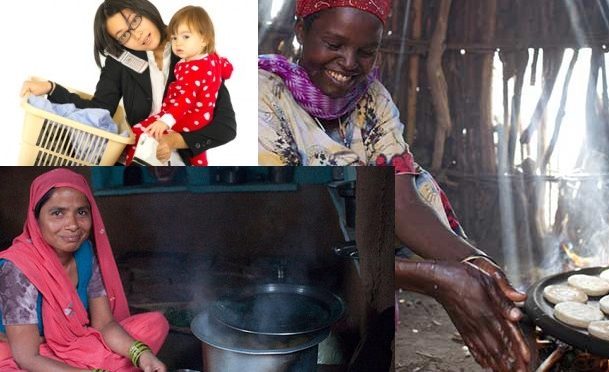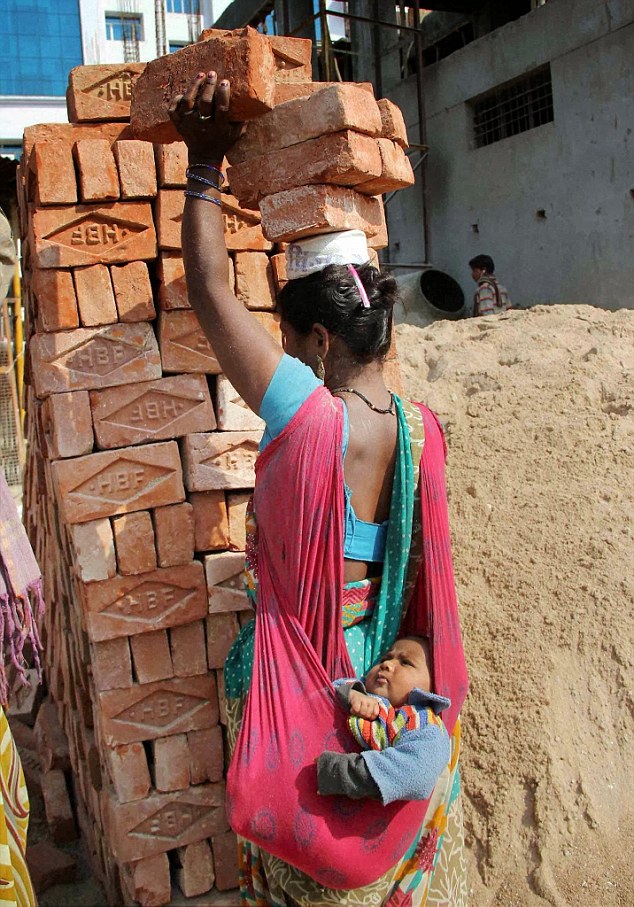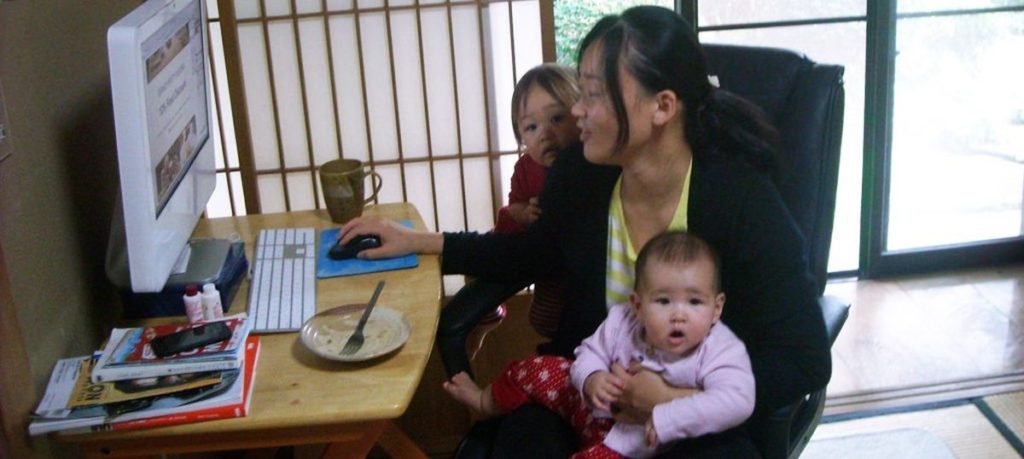
OMG! My Unpaid Care Work created a dent in the GDP
‘My’ here refers to every woman in this world, without any differentiation of society, cast or creed. The common factor for every woman is that she has to manage cooking, washing, cleaning, taking care of children and the elderly and numerous other activities that make a house a home. Such works are called Unpaid Care Work in economics.
It is not a new word. The necessity of including the Unpaid Care Work in the GDP calculation was suggested 80 years ago. That will be discussed later in this post.
According to a report by OECD (The Organisation for Economic Co-operation and Development) “Neglecting Unpaid Care Work leads to incorrect inferences about levels and changes in individuals’ well-being and the value of time, which in turn limit policy effectiveness across a range of socio-economic areas, notably gender inequalities in employment and other empowerment areas.”
There was a report in the newspaper that the National Sample Survey Office (NSSO) will conduct a survey in the household to know about the Unpaid Care Work done by the women. The reason being:
- the gap being created in the GDP
- the valuable service of the women that is lost to the society
- the equality between man and woman.
Whether employed or unemployed, a woman, according to studies 75% of the household work is done by women. And in India 700 women do household and unpaid care and their work are unaccounted for in the GDP.

From time immemorial the work done by a woman at home is considered as a duty. A dutiful woman wakes up early in the morning, before everyone else, and takes care of the entire family.
A woman having a job does two jobs every day. She hardly gets a break on a Sunday.
[plain]
Statistics of Unpaid Work
Country Women Men Gender Gap Index
% % Rank
India 66 12 108
China 44 16 100
USA 50 31.5 49
UK 56.7 32 15
Statistics of 2017
[/plain]
Everything was fine. Women considered the household duties as their commitment and worked to the bones to do her best for the family. The outlook towards the household work, done by women changed when the UN did some GDP calculations. They discovered that there was the gap in the GDP of all the countries because the contribution of the women at home is overlooked. 13% of the world GDP was from the unaccounted Unpaid Care Work.
What do Celebrities say about their Unpaid Care Work?
There was a report that Serena Williams, who is also a mother, said she is finding it difficult to balance her profession and home. She says that managing the house and a profession is an art.
Exactly, she is right. Managing the home and the job is an art. Either you are a good homemaker or you are a good professional. As Indira Nooyi said once, ‘ Women cannot have it all’.
The first woman to voice the above sentiment, Anne-Marie Slaughter, later realized that ‘no one can have it all’. She gives her own example, where she is the main breadwinner. Her husband takes care (or more care) of the children. She refers to him as ‘lead parent’ and herself as ‘non-lead parent’.
Who sacrifices well paid, high-profile career?
Because of the scores of care and routine household works to be taken care of, many potential women employees give up their job or take up part-time jobs. Their non-participation is a loss to the GDP.
One disturbing trend, nowadays in Indian metros, is that well-educated women are giving up their jobs so as to take care of the family. A woman, in her early thirties, holding a prestigious position in a Bank, left the job to take care of the family. She is now doing some work from home.
[plain]
INDIA
(Time spent by both genders on paid and unpaid works in India)
Women Men
Unpaid Work 297 31
Paid Work 160 360
(in minutes)
[/plain]
Why women leave their jobs
The reason why the well-educated women leave their job is that their salary is minuscule in comparison with that of their spouse.
Or maybe they have inherited a fortune. So they feel that their income hardly make any differce in the financial security of the family. So they choose to remain home as their service is required more at home than the society.

Another reason could be that the salary that is offered is not in tandem with the expense they have to manage. When a woman leaves for work she has to appoint a maid for washing dishes and cleaning the house. Arrange tuition for the children. Arrange a reliable driver to take them to the tuitions and extracurriculars.
All the expenses amount to between 10,000-15,000. If you appoint a cook and home nurse then the expenses with be much higher.
If the woman is going to earn around 20000 per month, she feels that ‘sitting at home’ is better. She can do all the above-mentioned work with more dedication and she can save the travelling time and expense.
[plain]
What are the consequences of excluding household production from national accounts?
It leads to misestimating households’ material well-being and societies’ wealth. If included, Unpaid Care Work would constitute 40% of Swiss GDP (Schiess and SchönBühlmann,2004) and would be equivalent to 63% of Indian GDP (Budlender, 2008). ‘OEC’s report on Unpaid Care Work'[/plain]
How we perceive the household work?
Generally, the household work done by women is perceived as a leisurely activity because the work is not time bound. On the contrary that is not the truth. Women have to plan, stick to a routine and work in a time schedule only then she can accomplish her duties.
Household work also involves a lot of stress. Household duty is serious business. If she skips one activity in a day the whole family is affected.
If we convert the household services into money, the UN says that it comes to 13 per cent of global GDP. Since we fail to oversee the household work as a paid job there are some serious flaws in the GDP of the countries.
UN says that if the government does not take care of the situation then the growth of the country will be affected.
How should the household work be perceived?
Firstly the quantum of household work done by women at home should be given a monetary value. Secondly, the Government should be able to provide care systems, so that the women can go out and work in their field of interest. Their contribution is equally important for the progress of the nation. Unpaid Care Work is an essential determiner in evaluating the social well-being of a Nation.
What is GDP?
80 years ago British economists Richard Stones and James Meade formulated a method to calculate national income. Now it is being used as the global stand to evaluate the economic growth of a country.
The Gross Domestic Product (GDP) gives an estimate of the financial products of the country. The GDP measures both the income and expenditure of the good and services.
The woman behind Unpaid Care Work in GDP
Phyllis Deane, an apprentice, hired by these eminent economists felt that the Unpaid household work also must be included in the GDP. She argued that a vast amount of productive activity done by women was not listed in the GDP.
She contended that the labour of cooking, taking care of elderly and children, collecting firewood, is traditionally considered as women’s work. After months of research in villages in Africa, Deane concluded that an all-inclusive GDP, that increased National income, can be formulated only if all producer, including rural women, are accounted.
Her recommendation was not considered in the GDP calculation in the past seven decades. Now that the present formula is under criticism, Deans suggestion of including Unpaid Care Work (mostly female work) in GDP in being considered.
According to studies the number of people requiring care, elderly, children, the disabled and the ill will increase by 2030. If someone cuts down of a few hours of work or even relinquish the paid job in order to do Unpaid Care Work that will create a huge, irreplaceable damage in financial security.
According to a BBC report “Unpaid carers save the UK economy almost £60bn a year, suggests a new analysis of official figures by the Office of National Statistics (ONS). About 8% of the UK population living in private households acted as informal carers last year, the Department of Work and Pensions figures show. The ONS calculates that it would cost £56.9bn to replace these unpaid carers with paid workers.”
According to ILO report ‘Care work and care jobs for the future of decent work’s “If investment in care service provision does not increase by at least 0.5 percentage points of global GDP by 2030 from the current 6.4 per cent of global GDP (as of 2015), deficits in coverage will increase and the working conditions of care workers will deteriorate.”
Women do more underpaid work
ILO report further says, “In 2018, 606 million working-age women said that they were not able to do so because of Unpaid Care Work. Only 41 million men said they were not in the labour force for the same reason.”
Inequalities lower in high-income countries
Source: World Bank (2014), World Development Indicators and OECD (2014), Gender, Institutions and Development Database. “Gender inequality in Unpaid Care Work is also related to the wealth of a country. Time use data reveals a negative correlation between income and levels of gender inequalities in Unpaid Care Work: the distribution of responsibilities is the most equal in high-income countries.”



It is actually a nice and helpful piece of info. I?¦m satisfied that you simply shared this helpful information with us. Please keep us informed like this. Thanks for sharing.
I beloved up to you will receive performed right here. The comic strip is tasteful, your authored subject matter stylish. nevertheless, you command get got an nervousness over that you would like be handing over the following. in poor health indubitably come more in the past once more since exactly the same nearly a lot frequently inside of case you defend this increase.
so much superb information on here, : D.
Hiya, I’m really glad I have found this info. Nowadays bloggers publish only about gossips and internet and this is actually annoying. A good website with interesting content, this is what I need. Thanks for keeping this web site, I will be visiting it. Do you do newsletters? Can not find it.
hi!,I love your writing so a lot! proportion we keep in touch more about your post on AOL? I need an expert on this space to solve my problem. Maybe that is you! Having a look forward to see you.
Rattling good information can be found on blog. “Life without a friend is death without a witness.” by Eugene Benge.
I beloved up to you’ll obtain carried out proper here. The caricature is tasteful, your authored material stylish. nonetheless, you command get got an impatience over that you want be turning in the following. in poor health surely come more until now once more since precisely the same just about a lot steadily inside case you shield this hike.
Howdy! Would you mind if I share your blog with my zynga group? There’s a lot of folks that I think would really enjoy your content. Please let me know. Many thanks
Valuable information. Lucky me I found your site by accident, and I’m shocked why this accident didn’t happened earlier! I bookmarked it.
Hello lifestyletodaynews.com administrator, Your posts are always well-supported and evidence-based.
Hello lifestyletodaynews.com administrator, Excellent work!
Dear lifestyletodaynews.com webmaster, You always provide great examples and real-world applications.
Hi lifestyletodaynews.com admin, Your posts are always well-received and appreciated.
Hello lifestyletodaynews.com owner, You always provide valuable feedback and suggestions.
Dear lifestyletodaynews.com owner, You always provide valuable feedback and suggestions.
To the lifestyletodaynews.com admin, Your posts are always well-referenced and credible.
Woh I like your blog posts, bookmarked! .
To the lifestyletodaynews.com administrator, Your posts are always well organized and easy to understand.
certainly like your website but you need to check the spelling on quite a few of your posts. A number of them are rife with spelling problems and I find it very troublesome to tell the truth nevertheless I will surely come back again.
To the lifestyletodaynews.com owner, Your posts are always interesting.
To the lifestyletodaynews.com admin, Thanks for the well-organized and comprehensive post!
Hello lifestyletodaynews.com owner, Your posts are always interesting.
Hello lifestyletodaynews.com owner, Your posts are always well-referenced and credible.
Dear lifestyletodaynews.com webmaster, Your posts are always well received by the community.
To the lifestyletodaynews.com owner, Your posts are always informative and well-explained.
Hi lifestyletodaynews.com owner, Your posts are always well received by the community.
To the lifestyletodaynews.com owner, Your posts are always well-supported by research and data.
Dear lifestyletodaynews.com administrator, You always provide helpful information.
Hello lifestyletodaynews.com webmaster, Your posts are always well received by the community.
Hi lifestyletodaynews.com webmaster, Your posts are always well-cited and reliable.
Dear lifestyletodaynews.com admin, Thanks for the well-organized and comprehensive post!
To the lifestyletodaynews.com owner, Thanks for the in-depth post!
Dear lifestyletodaynews.com webmaster, You always provide in-depth analysis and understanding.
I am also commenting to make you understand what a nice encounter my cousin’s child encountered reading yuor web blog. She mastered such a lot of details, which included what it is like to have an awesome teaching heart to let many people without difficulty know precisely specified impossible issues. You truly exceeded my expectations. Many thanks for providing such powerful, safe, revealing and also cool guidance on your topic to Gloria.
Hello lifestyletodaynews.com owner, You always provide clear explanations and definitions.
To the lifestyletodaynews.com webmaster, Great content!
Hi lifestyletodaynews.com webmaster, Thanks for the well-researched post!
Those are yours alright! . We at least need to get these people stealing images to start blogging! They probably just did a image search and grabbed them. They look good though!